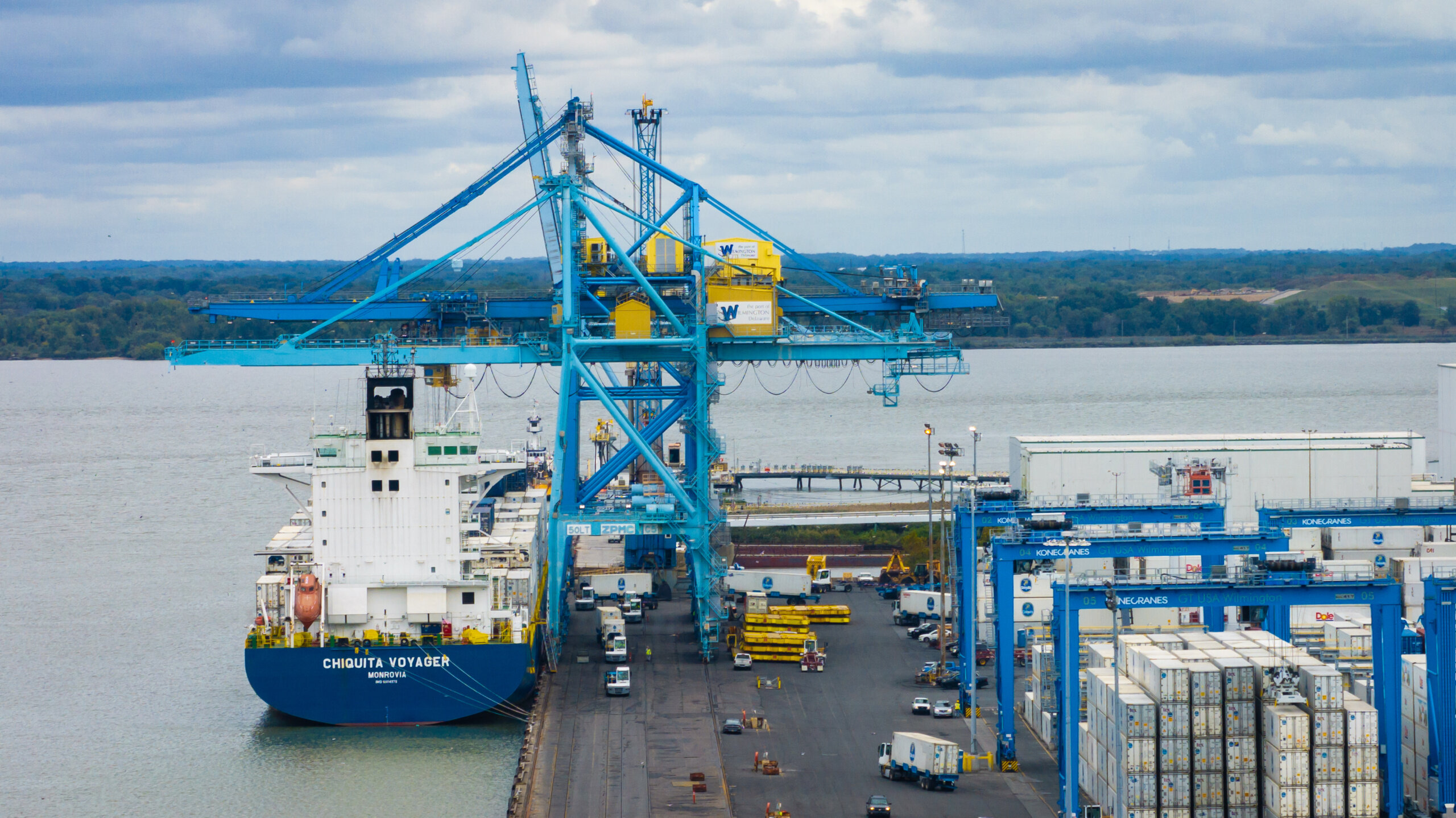October 1, 2024
By Saquan Stimpson/WITN22
WILMINGTON, Delaware, October 1, 2024—In a dramatic turn of events, longshoremen at the Port of Wilmington were seen on Tuesday waving to vehicles while picketing just outside the port’s entrance, marking the beginning of a significant strike. The strike, organized by the International Longshoremen’s Association (ILA), has cast uncertainty over one of the East Coast’s major shipping hubs, as workers protest the stalled contract negotiations between the ILA and the United States Maritime Alliance (USMX).
The strike is expected to have far-reaching effects, particularly on supply chains already weakened by recent economic disruptions. With ports along the East and Gulf Coasts involved, industry analysts warn of potential delays in everything from consumer goods to essential commodities like food and fuel. Given the strategic importance of Wilmington, disruptions here could send ripple effects throughout the region, impacting businesses, shipping schedules, and even holiday retail inventory levels.
Statement from Port Wilmington on Work Stoppage
In a prepared statement, officials from Port Wilmington acknowledged the seriousness of the situation:
*”We recognize and respect the activities associated with the ongoing contract negotiations between the ILA and USMX. We are prepared for a work stoppage impacting our operations starting tomorrow, Tuesday, October 1. We have communicated anticipated impacts to our customers and will continue to provide regular updates until operations fully resume.”*
Port Wilmington, owned by Enstructure, plays a key role in the shipping of goods along the Eastern Seaboard. The company operates an integrated network of marine terminals, including those on the Gulf Coast and Inland River System. Since its founding in 2016, Enstructure has provided services to major industries, such as agriculture, energy, and construction—sectors that now face potential setbacks if this strike continues.

Aerial view of cranes, unloading from Chiquita Voyager, Tuesday, October 1, 2024; at the port of Wilmington in Wilmington, Delaware. Photo by Saquan Stimpson | Part 107 Certified Drone Pilot
Economic and Regional Impacts of the Strike
This labor action comes at a time when the U.S. economy is still grappling with supply chain challenges. Recent data from the National Retail Federation (NRF) highlights that more than 90% of all consumer goods in the U.S. are transported via ocean freight, and any prolonged disruption at major ports can quickly escalate into nationwide shortages.
In the Northeast, the Port of Wilmington is a critical gateway, handling agricultural exports, food imports, and various industrial goods. The strike could affect shipping schedules for the remainder of the year, complicating already tense trade relationships and potentially pushing prices higher for consumers. Wilmington, in particular, faces delays in deliveries of critical goods such as chemicals and perishables, adding strain to local industries and businesses dependent on timely shipments.
Government and Union Response
Delaware County Executive Matt Meyer voiced strong support for the union workers, standing alongside them during this historic strike. In a show of solidarity, Meyer emphasized the importance of fair wages and the vital role that dockworkers play in maintaining the flow of goods.
President Joe Biden also weighed in on the negotiations, urging USMX to come to the table with a fair deal:
*”Collective bargaining is the best way for workers to get the pay and benefits they deserve. Ocean carriers have made record profits since the pandemic, and it’s only fair that workers, who kept ports open during that time, receive a meaningful increase in their wages.”*
Biden’s administration has expressed concern about potential price gouging, particularly as dockworkers will play a key role in delivering resources to communities affected by Hurricane Helene.
What’s Next?
With contract negotiations ongoing and no immediate resolution in sight, the ILA strike at Wilmington and other ports along the East Coast will likely continue to disrupt trade. As more ports brace for possible shutdowns, the effects could soon spread to other industries reliant on maritime logistics, from manufacturing to retail.
For now, the eyes of the East Coast—and indeed the nation—are on Wilmington. If the negotiations falter, the consequences may extend far beyond the city’s port, creating bottlenecks in a fragile supply chain and exacerbating inflation concerns already weighing heavily on the U.S. economy.
(Except for the headline, this story has not been edited by PostX News and is published from a syndicated feed.)

